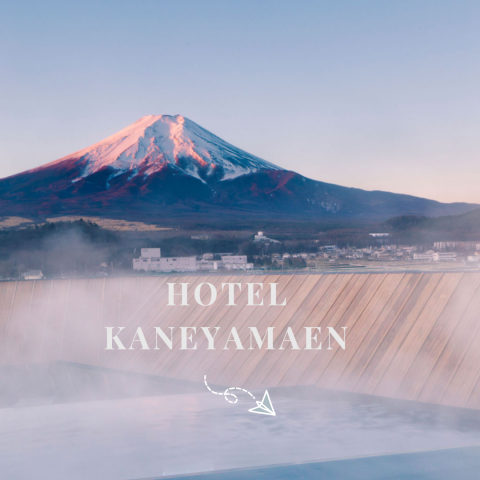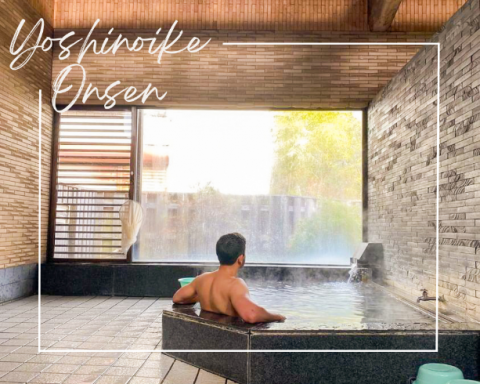Main content starts here.
In 2019, a tourism campaign started in Fuefuki City in Yamanashi, where local hotels started to celebrate the upcoming 500th anniversary of the pre-eminent warlord of Japan's Warring States period, Takeda Shingen (1521-1573). Read on to learn more about these historically rich hotels, and you just might end up wanting to book yourself a room!
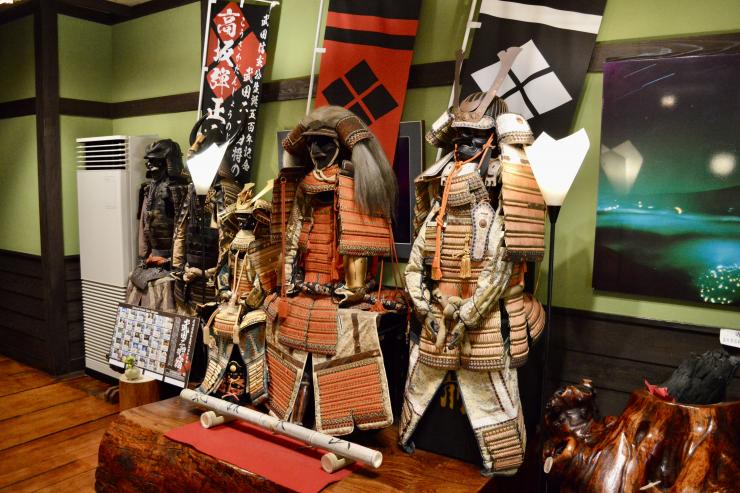
Hotel Ukai
Hotel Ukai is located in Fuefuki City, Yamanashi. In line with the samurai theme, Hotel Ukai offers healthy, hearty meals made from locally-grown veggies, as well as unique martial art demonstrations.
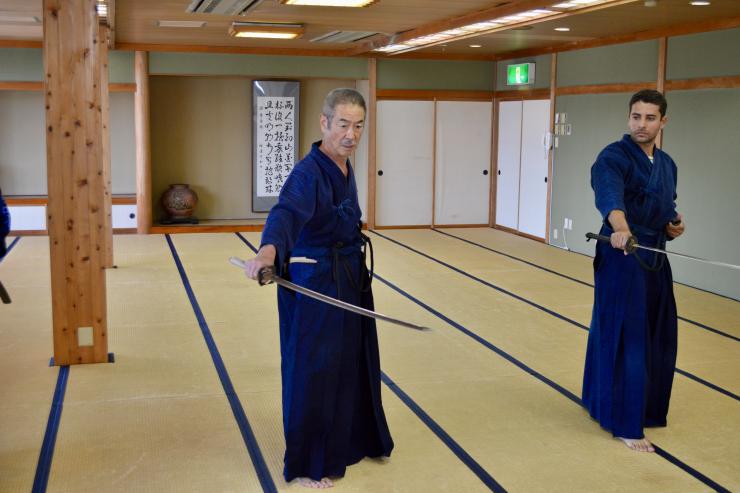
▲Katana (sword) experience at Hotel Ukai (Fuefuki City)
This Japanese swordsmanship experience reminded me of my first Japanese tea ceremony, or "sadō" (the way of tea). This is a common pattern in Japanese culture, where the "way" matters more than anything else. It isn’t the katana, it is the way in which you use the katana! The patience sharpens not only your swordsmanship, but also your mind. Having a calm, quiet mind may be your greatest weapon against the many battles of life.
First, just putting on the hakama (a type of loose-fitting trousers) seemed like it would take ages to master! There is only one right way, and a multitude of wrong ways, to wear this essential martial arts garment. By the time I had managed to get the hakama on, I was already in a state of flow. The deep dive into Japanese culture begins here. I realized my garment had seven deep pleats, two on the back and five on the front. Although they look balanced at first glance, the arrangement of the front pleats (three to the right, two to the left) is asymmetrical, and as such is an example of the asymmetry in Japanese wabi-sabi aesthetics. Wabi-sabi is a world view centered on the acceptance of transience and imperfection. The aesthetic is sometimes described as one of beauty that is imperfect, impermanent, and incomplete. Characteristics of the wabi-sabi aesthetic include asymmetry, roughness, simplicity, economy, austerity, modesty, intimacy, and appreciation of the ingenuous integrity of natural objects and processes.
For starters, we repeatedly withdrew our swords from our imaginary scabbards. All budō (martial arts), focus on muscle memory. Zen is gained by not overthinking things. Even though the movements appear to be highly prescriptive, they are actually pure meditation. This was especially seen in the way our instructor handled his sword with such care and grace. It is wonderful to see how motivated so many Japanese people are to share their culture with the rest of the world.
More Info
Hotel Ukai website:
http://hotel-ukai.co.jp
Geisha Experience at Hotel Kikori!
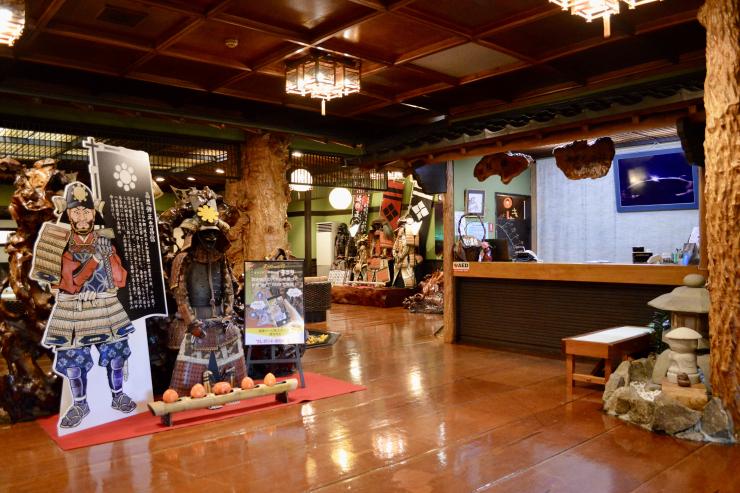
▲Hotel Kikori (Fuefuki City)
Hotel Kikori is also located in Fuefuki City. Step inside the hotel’s cafe to admire its massive wooden table, and then head to the hotel's shop to see its nostalgic collection of household items from the Showa Era (1925-1989).
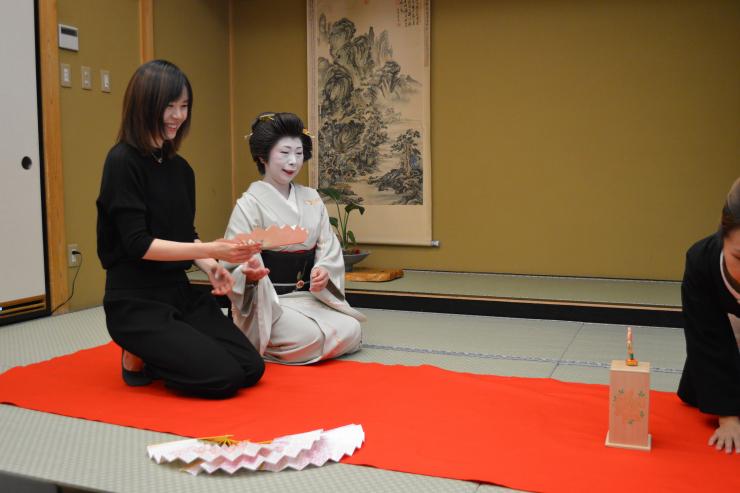
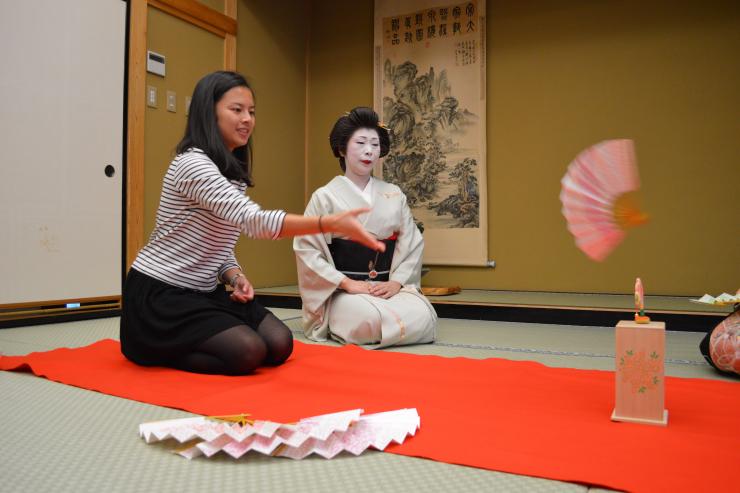
▲Geisha experience at Hotel Kikori
Your geisha experience at Hotel Kikori might include playing a game called "tosenkyo" (fan-tossing) where you try to knock a target, like a ginkgo leaf, off a wooden box known as the "makura" (pillow) with an open fan known as the "ougi." It is likely that the off-duty samurai of the Edo period (1603-1868) would have played this game to pass time between encounters with their rivals.
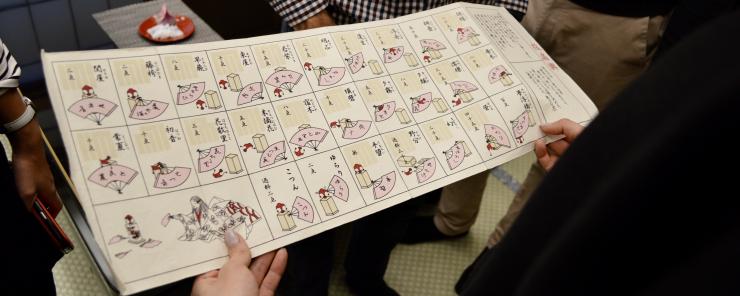
The true show-stopper at Hotel Kikori was the young woman who played the "shamisen" (a three-stringed Japanese instrument). She really rocked the house! I noticed a spot of blood on the instrument where she must have played till her fingers bled. She even played a tune from the 1960s rock band The Ventures. Later, we clapped enthusiastically as two geisha sang along to the music. It was quite entertaining to clap along to this traditional form of entertainment.
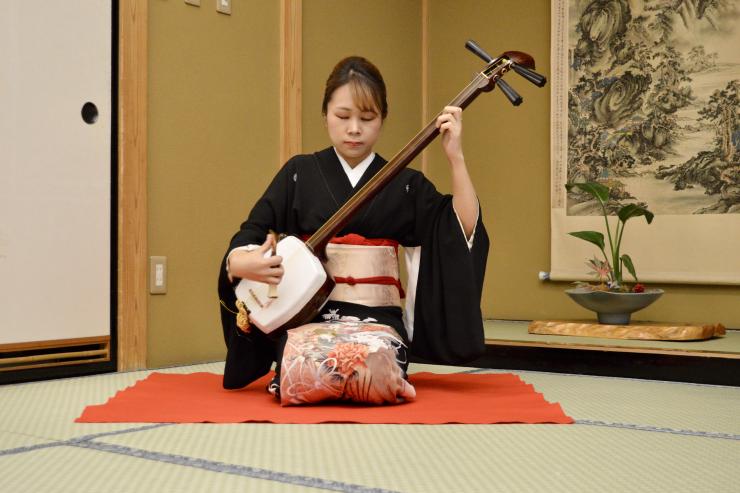
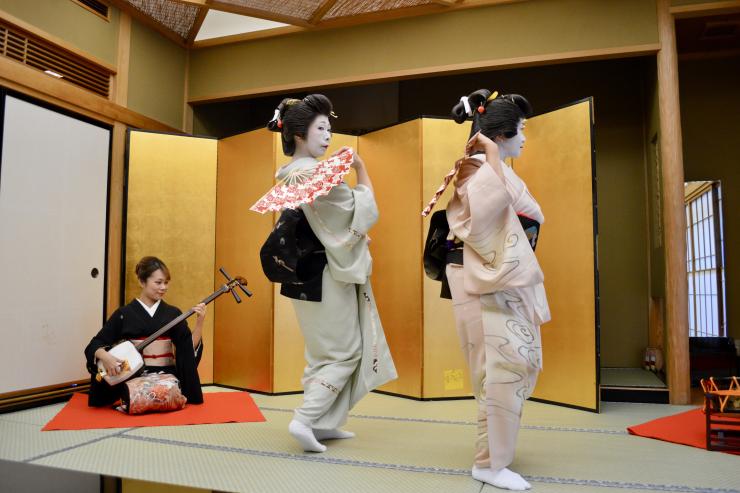
These days, it is not all too often you get the chance to see real geisha in Japan. Luckily, you can see them right here in Yamanashi without needing to travel all the way to Kyoto!
By the way, if you have ever wondered why geisha wear white makeup when they perform, it’s because it made their faces easier to see by candlelight, before electric lights were standardized.
More Info
Hotel Kikori website:
https://www.yamanashi-kankou.jp/special/ichioshiyado/kikori.html
Published on
- April 14, 2022
Share
-
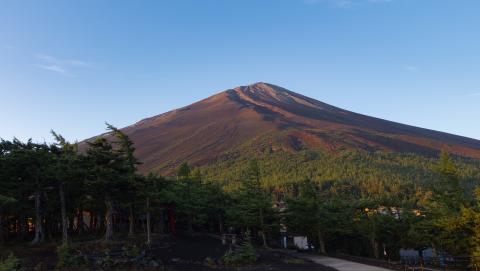
Fuji Subaru Line 5th Station & Mt. Fuji Travel Guide
March 3, 2025
Home of Mt. Fuji > Staff Journal > Samurai and Geisha: Hotels in Yamanashi
